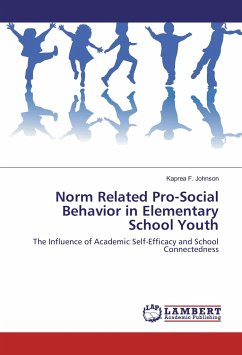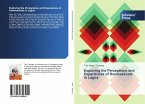The importance of mathematics at an early age stems from the finding that early competence is likely to lead to future mathematics achievement. Moreover, individuals that do well in mathematics are likely to have increased overall income earnings, while individuals that do not perform as well in mathematics are essentially limiting their potential for career options and labor market earnings. Studies have proposed processes related to mathematic underachievement that describe different ability groups to explain deficits in mathematics. This study investigated whether discrete latent classes can be observed in children within the continuum of mathematic achievement ability. The findings provided partial evidence for the hypothesized ability groups along the math achievement ability distribution. The ability groups observed were further tested for external validity. Evidence for the external validity of measures suggests that the indicators played a critical role in distinguishing between ability groups. Results gathered from this research support the notion of mathematics learning ability groups and improves the identification of children at risk for math difficulties.
Bitte wählen Sie Ihr Anliegen aus.
Rechnungen
Retourenschein anfordern
Bestellstatus
Storno








